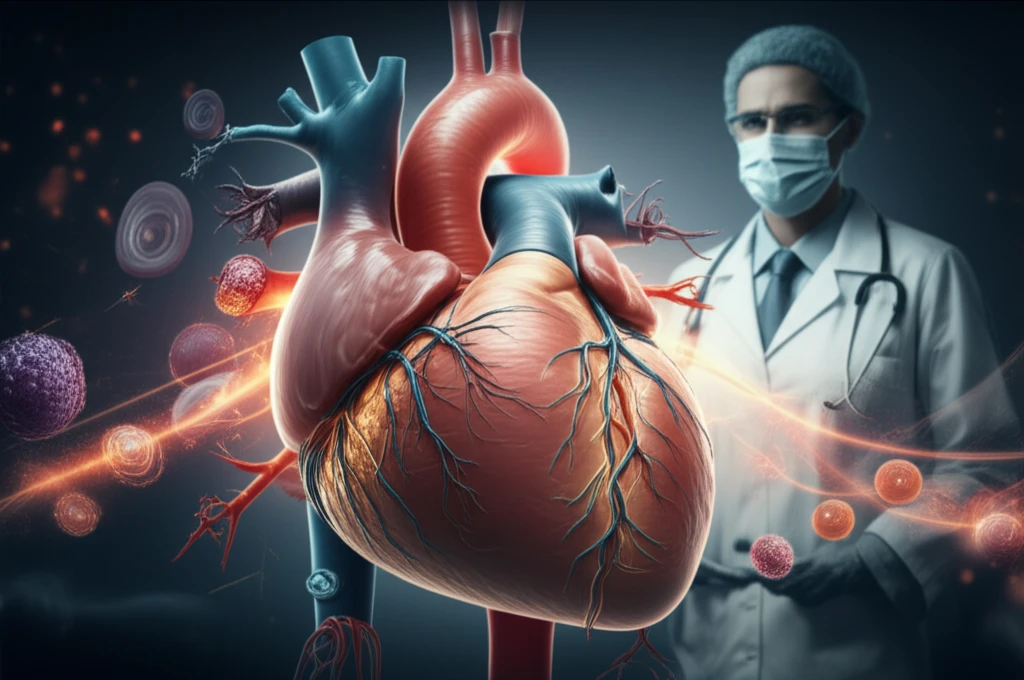
Heart Health Heroes: Decoding the Mysteries of NSTEMI and Inflammation
"Unveiling the intricate connection between inflammation, heart health, and cutting-edge treatments for Non-ST-Elevation Myocardial Infarction (NSTEMI)."
In the world of heart health, understanding the nuances of conditions like Non-ST-Elevation Myocardial Infarction (NSTEMI) is crucial. NSTEMI, a type of heart attack, often presents without the classic ST-segment elevation seen in other heart attacks, making early diagnosis and treatment vital. But what exactly causes NSTEMI, and how can we best protect our hearts? The answer lies, in part, with inflammation.
Recent studies have illuminated the critical link between inflammation and NSTEMI. This article dives deep into the latest research, exploring how inflammatory processes contribute to the development and progression of this condition. We'll also examine innovative diagnostic approaches and therapeutic strategies, offering a comprehensive look at the journey from understanding the disease to finding effective treatments.
Our goal is to provide you with accessible information, empowering you to make informed decisions about your heart health. We aim to translate complex medical research into actionable insights that you can incorporate into your daily life. From understanding the role of hyaluronan in the body to exploring cutting-edge catheterization techniques, we'll cover everything you need to know to stay informed and proactive about your heart health.
Unpacking NSTEMI: The Ins and Outs of a Silent Threat

NSTEMI occurs when blood flow to the heart is significantly reduced, often due to a partial blockage in one or more of the coronary arteries. Unlike other types of heart attacks, it doesn’t always cause the dramatic, tell-tale signs. Symptoms may include chest pain (angina), shortness of breath, nausea, or fatigue. Because of this variability, diagnosing NSTEMI requires a combination of symptom assessment, electrocardiograms (ECGs), and blood tests.
- Chest Pain: Discomfort, pressure, or tightness in the chest, often radiating to the arm, jaw, or back.
- Shortness of Breath: Difficulty breathing or feeling like you can't catch your breath.
- Nausea or Vomiting: Feeling sick to your stomach or throwing up.
- Fatigue: Unusual tiredness or weakness.
- Sweating: Excessive sweating.
Empowering Your Heart Health Journey
Understanding the intricate relationship between inflammation, NSTEMI, and the innovative treatments available today is a significant step towards safeguarding your heart health. By staying informed, adopting heart-healthy habits, and working closely with your healthcare provider, you can actively manage your risk factors and promote a healthier, more vibrant life. Remember, knowledge is the first step in the journey to a healthier heart!
